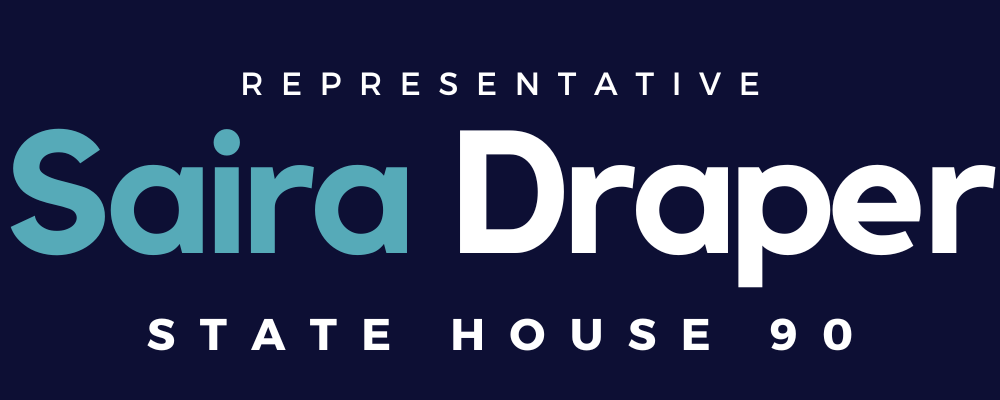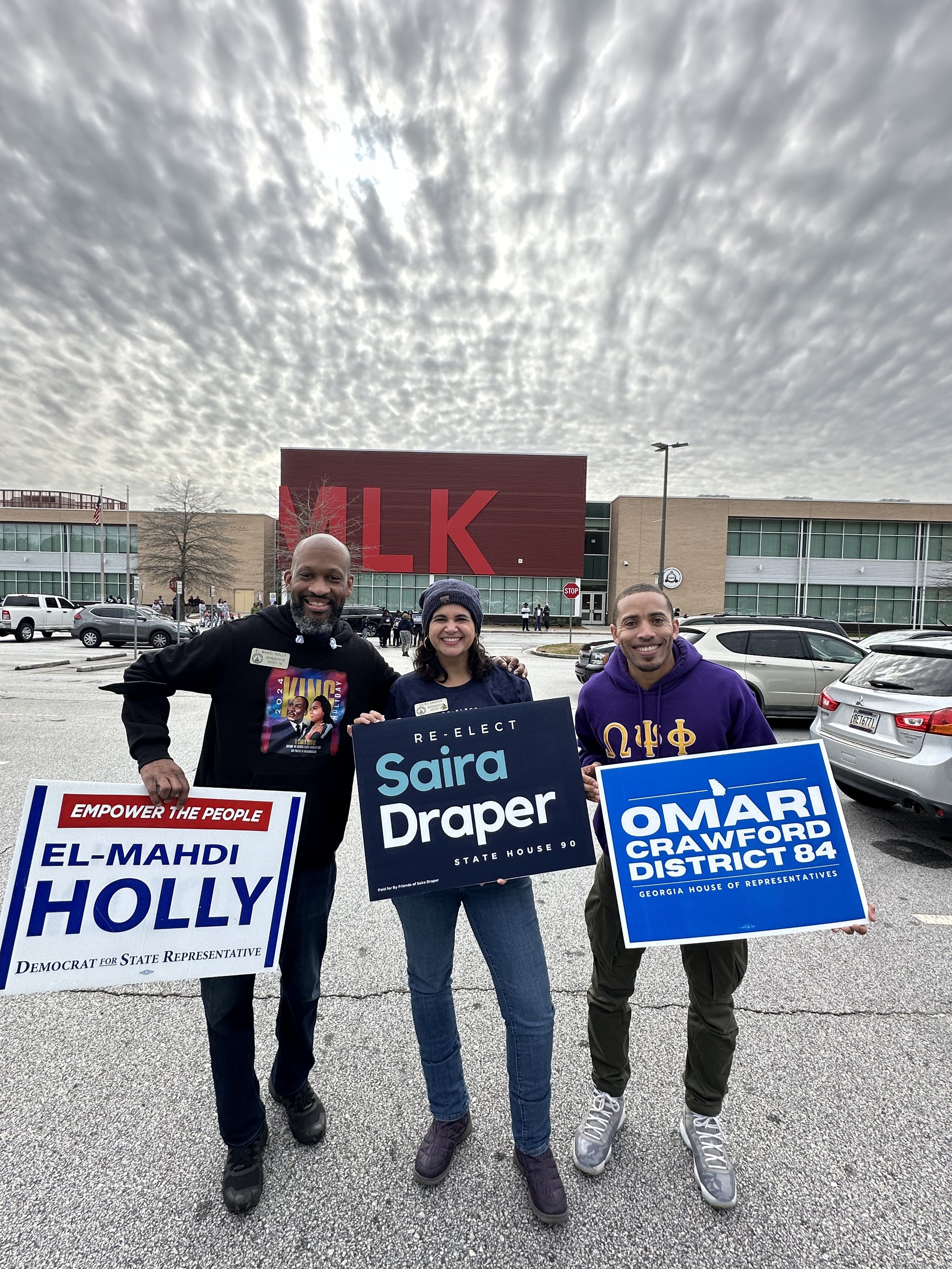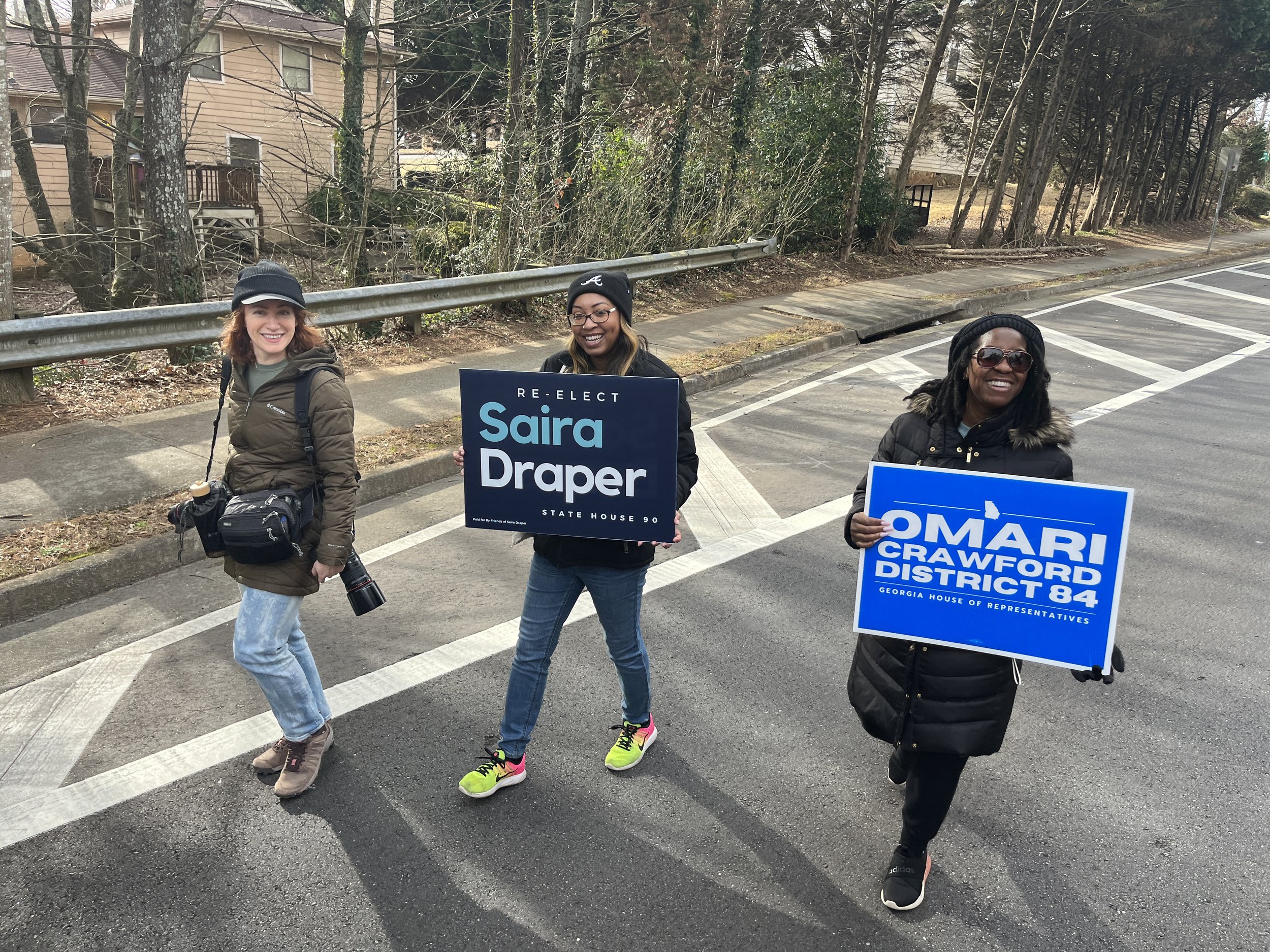Legislative Session Week 1
The 2024 session is off and running.
January 16, 2024
We are back at the Gold Dome and this promises to be a raucous session.
A lawsuit has brought us new district lines that affect much of the state, including folks in House District 90. Election season has started so there will be a lot of posturing and political agendas on display. There will be more attempts to change how Georgians vote amid all the false claims of election fraud. And we have flush coffers allowing us enough money to raise state employee pay and to put more dollars into programs – – where the money is placed, of course, is the big question.
During the Governor’s State of the State address last week, he laid out his hopes for the session. While I applaud some initiatives, including a renewed focus on healthcare and possible Medicaid expansion, I am concerned about a number of misplaced priorities and the omission of vital issues. I’m also concerned by the Governor’s divisive rhetoric, which I expect will only ratchet up as the 2024 election cycle heats up.
We left the Capitol on a good note last week, coming together to celebrate the legacy of Dr. Martin Luther King, Jr. His only granddaughter, Yolanda Renee King, 15, gave the keynote address. It was a true delight.
Martin Luther King, Jr. Day was a day on, not off. My friends and colleagues participated in the parade organized by the DeKalb NAACP. In these fraught times, I was thankful for dedicated time to reflect on Dr. King’s teachings.
Maternal mortality
Georgia’s shameful maternal mortality rate is a prime example of an issue omitted from the Governor’s priority list.
I was honored to be surrounded by my friends and colleagues as I spoke about this critical matter from a place of personal experience. I also used the opportunity to describe why the fears around giving birth in Georgia are multiplied for Black women. My Black sisters have a risk of dying during childbirth that is 3.3 times higher than for other races and ethnic groups. Georgia has the third highest maternal mortality rate in the country, and it’s getting worse.
For years, Republicans have refused to address this health crisis. So, House Democrats created our own maternal mortality committee, to which I was appointed. Earlier this month we held a public hearing to raise awareness and keep relevant information front and center. At the hearing, we heard from doctors, researchers, and other experts in the field. We also heard from women who came close to death while giving birth, or who lost someone they loved. Woman after woman bared her soul to us, telling us of her most painful moments. They do so in service to all of us, and for the purpose of giving other women, and their babies, a better chance at surviving childbirth in Georgia. I am so grateful.
We are truly in a state of emergency, and it is past time to treat this issue with the seriousness it deserves.
House Democrats are committed to raising the issue of maternal mortality every day of the 2024 session, or until action is taken. Enough is enough.
Election-related legislation in 2024
Playing offense
The fear mongering and conspiracy talk has not stopped despite de minimis evidence of fraud at the ballot box, and some have ideas for addressing “problems” that don’t exist.
I am resuming my push that started last year to promote practical, fair, pro-voter election policy. I also expect to be fighting some anti-voter, politicized legislation.
I’m thrilled that two of my ideas have some support across the aisle and across the Capitol Rotunda.
Kids Under 5 Bill
This bill eliminates the wait time guessing game for parents of babies and toddlers at the polls. House Bill 559 would allow parents accompanied by children 5 or younger to move to the front of the line to vote. We currently offer this option to our older voters and voters with disabilities because they may not be able to wait in a long line. The same applies to parents who can only vote if they bring a squirming, bored child to the polls, or a baby that needs to nap or eat. A line should not keep them away from the polls and I think this is one way to help families participate in the civic process.
Runoff Reduction Bill
The second bill, House Bill 419, would reduce the number of runoff elections in Georgia, a priority shared by Secretary of State Raffensperger. In 2020 and 2022 we spent the Thanksgiving and December holidays in election mode due to runoffs in the U.S. Senate races. By the time those runoffs were over, people were exhausted and millions of additional dollars had been spent.
In Georgia state elections, if no candidate receives at least 50% + 1 votes, there’s a runoff. My bill would reduce the runoff threshold from 50% to 45% for regular, general elections.
Runoffs aren’t just tiresome; they are expensive and they are a poor reflection of voter preference since only a sliver of the electorate turns out a second time. Georgia is the only state in the country that has runoffs after primaries and general elections.
My bill is the simplest and most cost-effective option currently on the table to reduce runoffs right away. (The other option on the table is a rank choice voting bill, which I’m not necessarily against studying for future use, but it will require equipment changes, a massive re-education campaign, and a budget to support the re-education campaign. It’s simply not something that could be implemented quickly).
I plan on introducing several additional pieces of election and pro-democracy legislation in the coming weeks. Stay tuned!
Playing defense
Republicans like to tout Georgia as a place where it’s easy to vote and hard to cheat. Nevertheless, I expect this session they will make voting more difficult under the false pretext of election security and “increasing trust in our elections.”
Of course they know that no additional facts, evidence, or policy changes will satisfy the election conspiracy theorists. Catering to them, and allowing them to drive policy, is a choice. A convenient choice in an election year.
Voter Challenges
I expect to see legislation making it easier for private citizens to challenge a voter’s right to vote, referred to as “voter challenges.”
In the weeks before the 2021 runoff, over 300,000 voter challenges were filed in Georgia, the overwhelming majority of which were dismissed as meritless. Yet, the filers still achieved their objectives of chilling voter turnout and gumming up the works at election offices around the state. Because of a change in the law in 2021, voter challenges are easier to file now than ever before.
Consequently, activists have been empowered to bring thousands of challenges and demand hearings based on low quality data – – spreadsheets of just names and addresses offered as evidence of ineligible voters. These challenges have targeted college students, minority communities, and the homeless. And, they are mostly being filed in Democrat-rich counties.
Most of the time, these challenges fail. But staff and board of elections members put in substantial time and money to research and hear the cases. And it’s a major distraction from all the other duties on their plates.
If permitted to continue, bad actors will weaponize voter challenges against Democrats during the 2024 election cycle. I'm closely monitoring efforts to make voter challenges easier.
QR codes
House Speaker Jon Burns announced he wants to eliminate the QR codes that appear on the ballots printed at the polls during in person voting. While the text of a voter’s choices are printed on the paper ballots too, critics of the system say there is no way they can be certain that the QR code reflects their choices. And under current law, it is the QR code that reflects a voter’s official vote– not the text.
Our equipment doesn’t have the capability to read the text – – only the QR code. In the case of a vote-by-mail ballot, the equipment reads the oval filled in next to a selection.
Image credit: Stephen Fowler
I’m curious to see what alternative Republicans come up with to QR codes. I’ve heard there’s a proposal that full-face ballots would be printed at the polls as opposed to single sheets of paper with a QR code. If that’s true, counties would be forced to trash expensive equipment that cost state taxpayers millions.
And then spend millions more on new printers that could produce an 18-inch ballot.
But most concerningly, this “solution” wouldn’t actually address the underlying problem— because whether a tabulator is reading a QR code or is reading the coordinates of a bubble filled out next to a name, one can’t be certain the scanner is correctly recording a vote.
If we really want to address the issue of whether the scanner/tabulator reflects a person’s vote, we’d be talking about creating more robust audit processes, not replacing QR codes.
Another page in the book of election security theater.
Bills I’m co-sponsoring in 2024
HB 856 - Urgent Insulin Safety Net Program Act; enact
This bill enables patients who cannot afford their insulin in the short term to be availed of a 30-day supply for a copay of no more than $35.
HB 857 - Continuing Insulin Safety Net Act; enact
This bill would allow patients who have been prescribed but cannot afford their insulin in the intermediate term to apply for a 90-day emergency supply for a copay of no more than $75, with the option to renew for up to one year.
HB 875 - Firearms; persons convicted of family violence offenses cannot possess or purchase; provide
This bill would provide that persons convicted of family violence offenses or subject to family violence temporary protective orders cannot receive, possess, transport, purchase, or transfer firearms.
HB 914 - Safe Teens Act
This bill would authorize local boards of education and other public school governing bodies to offer driver education as an elective course.
I want to hear from you.
To keep you up to date, I will be sending newsletters often during the session and posting on social media. Please sign up if you haven't already!
In service,









